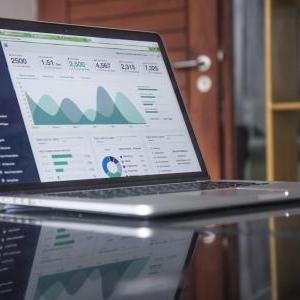If you're planning to create a blog on the internet, you need to know the basics. Creating a blog consists of posts, categories, and pages. These three elements are essential to the success of your blog. You'll need an easy-to-navigate website structure. You can learn about these building blocks by reading this How-to guide. Moreover, you'll discover how to optimize your blog for search engines and create several main pages on your blog.
Content pillars
When starting a blog, a newcomer can benefit from identifying content pillars to focus on. Identifying your content pillars is essential to staying focused and ensuring that your audience is getting what they're looking for. Content pillars are your anchors for messaging, topics, and keywords. This thesis by
https://essaypay.com/research-paper-writing-service/ also help you establish authority and build trust with your audience. The following are five pillars that you should have in mind.
The cornerstone content in your blog should have content that will be used for different types of content, including individual posts and in-depth guides. The headline must catch the attention of potential readers, and should include your main keyword phrase. Use a font size of twenty to thirty-six pixels for headlines. Use the pillars as a guide to brainstorm ideas for individual posts and sub-topics.
Choosing a profitable niche
Choosing a niche for your blog is critical, especially with the expected 31.7 million bloggers in the year 2022. If you don't know how to choose the right niche for your blog, consider the following three steps:
- The first step to choosing a profitable niche is to find out what your audience wants and needs. A blog about money is one of the most popular niches online. You don't have to be an expert, but you should be passionate about it.
- Write about the things you love and are currently learning about. Your audience will be interested in what you have to say.
- The most successful bloggers write about topics they know and are passionate about.
Optimizing your blog for search engines
When starting a blog, one of the most important aspects is optimizing it for search engines. The most important SEO factor is finding the right keywords. Keywords are the most commonly used terms when writing content. Search engines check the content to see if it contains those keywords. There are many keyword tools available, but they can be expensive and time-consuming to use. Instead, follow these SEO tips to improve the rankings of your blog and attract more readers.
High-quality content is not just important for your readers. Search engines also favor pages that contain more links than those that do not. If you have articles about a particular topic, focus on introducing relevant reading lists at the end of each post. You can also use meta-length checkers to avoid exceeding the character limit. Finally, make sure your website is mobile-friendly. Google recently made page speed a ranking factor, so make sure your content loads fast.
Creating a few main pages on your blog
Developing a good content strategy is the key to generating traffic. The most important aspect of your blog is content. It should be informative, provide your audience with knowledge, and keep them coming back for more. You should write and submit new content regularly at specific intervals. Don't wait months before creating new content, as this won't generate a following. Create a sample post to test the waters. Then you can delete it later.
The About Page should tell readers a little bit about yourself and your blog. It includes the main call-to-action button, which should take your readers to an important page on your blog (such as your opt-in form for your email list). It also includes internal links that allow readers to navigate the rest of your blog. Your About Page should include anything you would like your readers to know about you, such as the background of your blog.
Identifying your ideal readers
The first step in establishing a successful blog is to identify your niche. Your niche will determine everything about your blog from the URL to the domain name. It will also determine the content of your blog. You may want to write about a particular hobby, topic, or interest, but make sure you know who your target audience is. Once you've identified your audience, you can develop a unique voice and focus on creating interesting and original content. Be transparent about affiliate links and promotional content.
